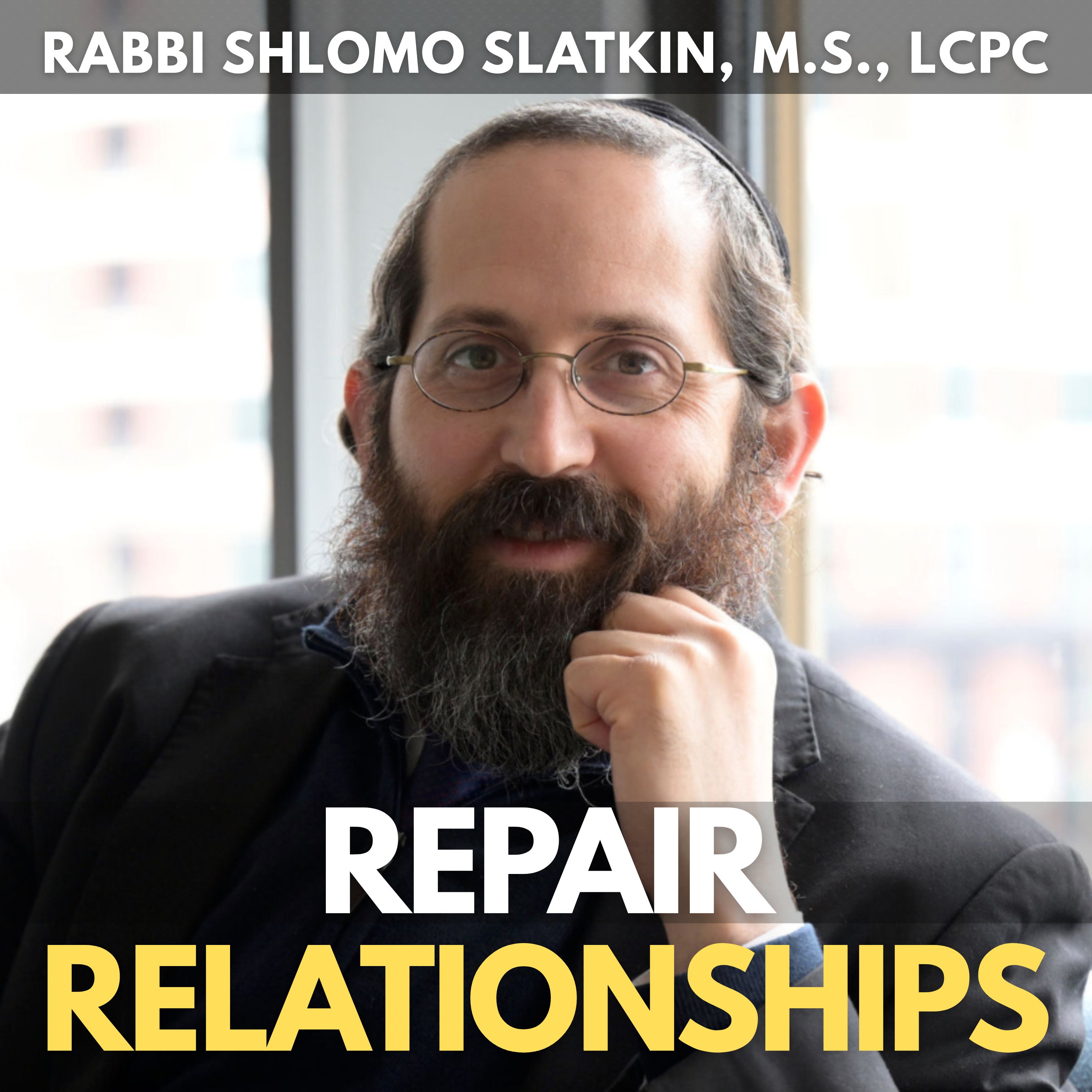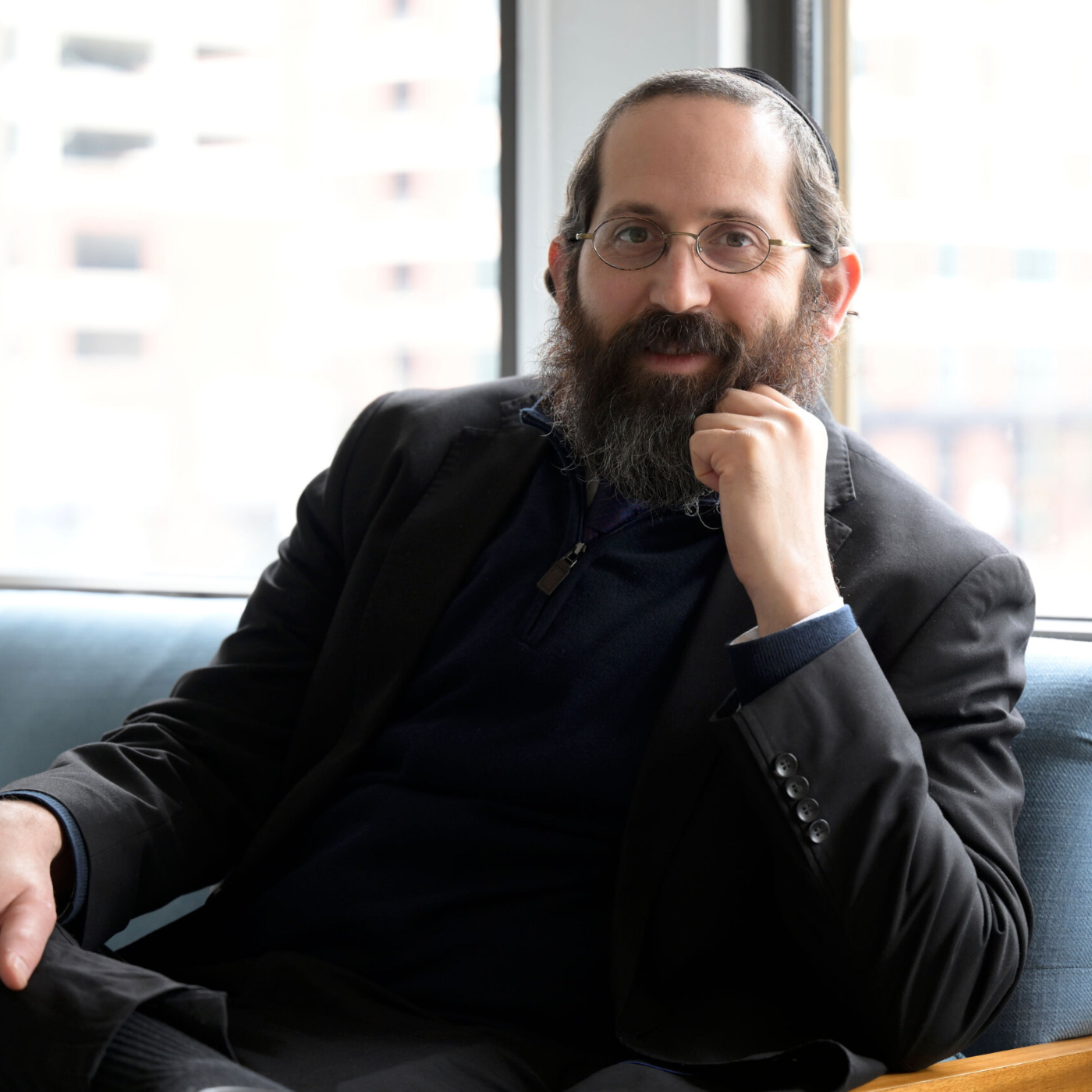Unlocking Relationship Success with Rabbi Shlomo Slotkin, M.S., LCPC | Ep 87

Download our gift: The Five Habits of Highly Toxic Managers.
Episode Summary
In this conversation, Paul Leon interviews Rabbi Shlomo Slotkin, M.S., LCPC, a licensed clinical professional counselor specializing in Imago Therapy. They discuss the importance of understanding relationship dynamics, the role of commitment, and effective communication skills in maintaining healthy relationships. Shlomo Slotkin shares insights from his personal journey and professional experience, emphasizing the need for emotional safety and caring behaviors in both individual and workplace relationships. The conversation also touches on the challenges of navigating different backgrounds and belief systems in relationships, as well as the significance of sensitivity and self-awareness in personal growth.
Follow Rabbi Shlomo Slotkin, M.S., LCPC
Website | Books | LinkedIn
Chapters
00:00 Introduction to Shlomo Slotkin
03:46 Recognizing the Need for Help
07:46 Communication and Reactivity in Relationships
12:03 Caring Behaviors and Love Languages
15:47 Practical Steps for Couples
20:42 Navigating Relationships Across Belief Systems
23:59 Guardedness in Couples Therapy
30:30 Managing Sensitivity in Relationships
33:59 Training for Relationship Professionals
Shlomo Slatkin (00:00)
I train teams to work together—how to communicate, how to follow a process that’s safe enough to share what you’re feeling, and how to give feedback in a way that’s uplifting and supportive instead of demoralizing and damaging. This is a skill most people don’t naturally have. You can work your way up in a company, but that doesn’t mean you know how to talk to people or manage them.
My name is Shlomo Slatkin. I’m a licensed clinical professional counselor certified in Imago Therapy, a couples modality. I’m a workshop presenter and faculty member who trains other therapists in Imago Therapy. I work with couples in two-day intensives, and I help businesses—both employees and CEOs—resolve conflict and maximize productivity as a team.
Paul Leon (00:51)
Talk to me more about why that’s important.
Shlomo Slatkin (00:54)
Imago Therapy was created in the ’80s by Dr. Harville Hendrix and his wife, Helen LaKelly Hunt. They wrote Getting the Love You Want. Harville wanted to understand why the dream of romantic love often becomes a nightmare—why we have a 50 % divorce rate.
Imago offers a comprehensive understanding of human relationships. Why do we choose the partner we choose? We carry an unconscious image—an imago—of an ideal partner who combines the positive and negative traits of our caregivers. Marriage is “unfinished business” from childhood meant for growth and healing. First comes the romantic stage, then the inevitable power struggle, but that’s not the end. The third stage—conscious marriage—starts when we see conflict as our own baggage, become less defensive, and choose intentional responses.
Imago also teaches concrete skills to communicate and create emotional safety. When we feel safe, we leave our reactive brain and show up as our best selves. Yesterday’s couples workshop was amazing: in two days couples arrived at one place and left another—powerful, healing work that changes not just them but their children and generations after.
Paul Leon (03:22)
How long have you been doing this?
Shlomo Slatkin (03:24)
Professionally, about 20 years—personally, 22. When our first child was born, my wife and I tried Imago Therapy for our own marriage; it saved us. While getting my master’s in counseling psychology, my therapist urged me to certify. I remember thinking we had to get help—it was too painful otherwise.
We married quickly—six weeks dating, engaged, married three months later (typical in my Jewish circles). We thought communication would be easy, but tension rose. We pushed each other’s buttons. I was the “dragger”; she was the “draggee.” Her parents divorced when she was 11, so volatility scared her; my parents have been together 50 years, so commitment is my motto. Colleagues and even my wife’s hairdresser recommended Imago. After one 90-minute session we felt reconnected—not perfect, but hopeful. Continued work got us to a better place, and we’ve now been married about 24 years.
Paul Leon (06:08)
You mentioned taking responsibility. I’m the product of divorce; my wife is too. Early on I’d leave the room when fights got tense—TV taught me that. My wife held my feet to the fire: “We’re not doing that. We talk it out.” Based on your five-step plan and books, what roles should each partner play during conflict?
Shlomo Slatkin (07:00)
Most couples need to control reactivity. It’s hard to listen when you disagree, especially if the other person isn’t speaking safely. Sometimes people walk away because they’re not committed. Step 1 in my book is commitment: if you’re committed, you can solve anything; without it, the smallest issue can end the relationship. Even one partner holding the commitment can keep the relationship alive.
Commitment also means creativity—asking, “What do we need to make this work?” The same applies at work: don’t quit a job because it’s uncomfortable; commit to improving it. “Talking it through” requires skills so both feel heard and safe.
Paul Leon (10:29)
How many people have you trained?
Shlomo Slatkin (10:33)
Thousands. We also have a self-study online course based on the book. The last step is Love Infusions—daily appreciations, caring behaviors, fun. If things are too painful, reconnect first, then recommit. I’ve seen infidelity recover where commitment was strong, and minor issues fail where one partner had an exit plan. Commitment is the starting point.
Paul Leon (12:52)
Tell me more about caring behaviors.
Shlomo Slatkin (13:01)
Couples often give, but the partner doesn’t feel loved. One husband poured out words of affirmation; his wife needed a simple box of chocolates. They spoke different love languages (Gary Chapman): he needed words; she needed acts of service or gifts. We teach couples to list (1) times they felt loved in the past, (2) what currently makes them feel loved, and (3) what they’d like but never had. That to-do list lets partners love in the other’s language.
Paul Leon (18:01)
People slip back into reactivity. How do couples stay on track?
Shlomo Slatkin (18:45)
Make time to nourish the relationship regularly. Repetition ingrains new habits. After doing the work, couples recover faster; fights aren’t as bad because they have tools.
Paul Leon (20:26)
How do mixed-background couples succeed?
Shlomo Slatkin (20:42)
Respect differences and make space for each other. Divergent beliefs add complexity; strong, conflicting values (religion, politics, children) require negotiation. People also change over time. Safety and respect are crucial, whether at home or in the boardroom.
Paul Leon (23:46)
Do couples arrive guarded?
Shlomo Slatkin (24:27)
Often one is the “dragger” and the other the “draggee.” Vulnerability is scary—admitting a problem and sharing in front of a third party. Our first goal is safety; once they feel safe, they open up.
Paul Leon (25:06)
What keeps your 24-year marriage strong?
Shlomo Slatkin (25:47)
Commitment: quitting isn’t an option. Also, ownership—focusing on my reaction rather than blaming my spouse. “If it’s hysterical, it’s historical.” Ten percent is the trigger; ninety percent is my own history. Our partner’s complaints hold the blueprint for our growth.
Paul Leon (28:01)
So 10 % trigger, 90 % history?
Shlomo Slatkin (28:22)
Yes. Reactions vary because of personal history. That doesn’t excuse bad behavior, but each partner must understand why they respond so strongly.
Paul Leon (30:09)
As an overly sensitive man, how can I avoid overreacting?
Shlomo Slatkin (30:35)
Ask, “What’s familiar about this?” When triggered, the brain can’t tell past from present—like PTSD. Identify the old wound, view conflict as growth, and remember your spouse’s reaction is also 90 % their history.
Paul Leon (33:05)
Any daily quotes?
Shlomo Slatkin (33:15)
-
“You can be right, or you can be in a relationship.”
-
“If it’s hysterical, it’s historical.”
-
“If you listen long enough, everyone makes sense.”
Paul Leon (33:58)
What are you promoting?
Shlomo Slatkin (34:00)
Private couples intensives, our online course, and a training program for therapists, coaches, and other professionals. Details on our website.
Paul Leon (35:09)
How can managers use these ideas?
Shlomo Slatkin (35:18)
By becoming relationally intelligent—creating psychological safety so people share ideas without fear. Google’s research shows teams with high psychological safety outperform others. When the brain is safe, we access our full prefrontal cortex—creativity, solutions, success.
End of corrected transcript excerpt.

Rabbi Shlomo Slatkin
Founder, Therapist
Rabbi Shlomo Slatkin, MS, LCPC is a Licensed Clinical Professional Counselor and Certified Imago Relationship Therapist who has spent the last two decades helping couples heal and reconnect. As co-founder of The Marriage Restoration Project, he has facilitated intensive retreats and developed proven frameworks that transform communication and rebuild trust in relationships.
Now, Shlomo brings the same tools that have helped thousands of couples into the workplace-supporting leaders and teams in improving relational intelligence, psychological safety, and collaborative dynamics. Drawing from deep clinical experience and real-world success, his approach helps organizations strengthen culture through better connection and communication.


















